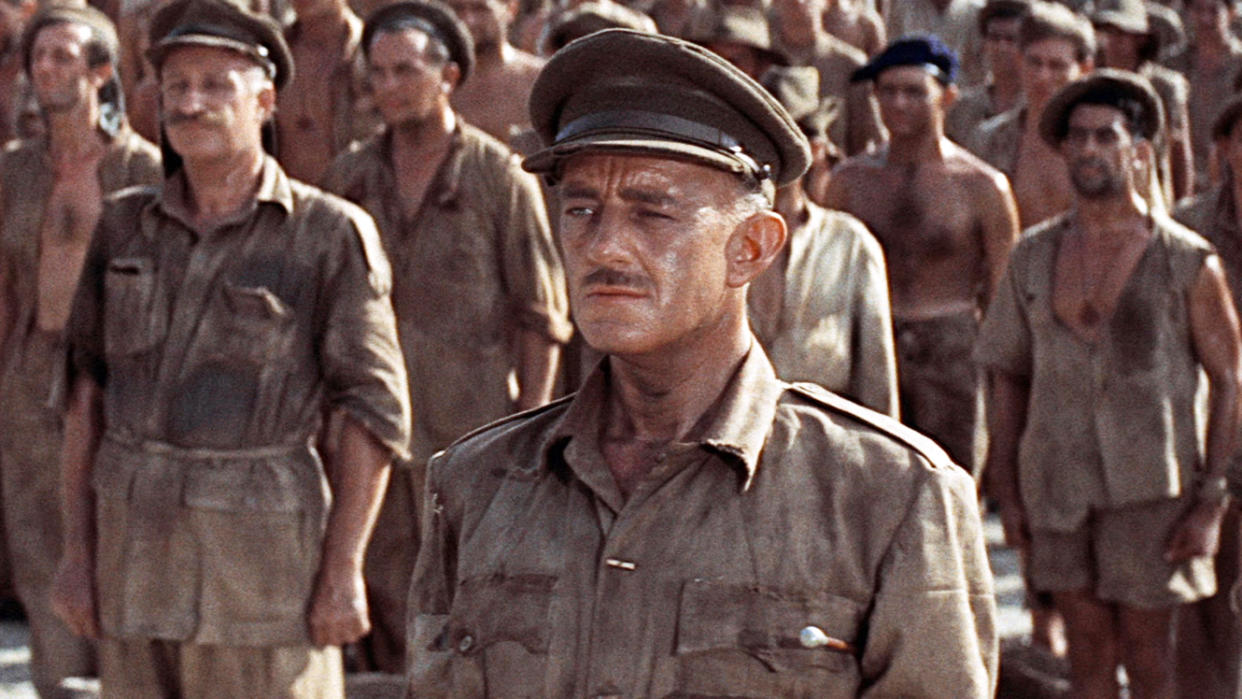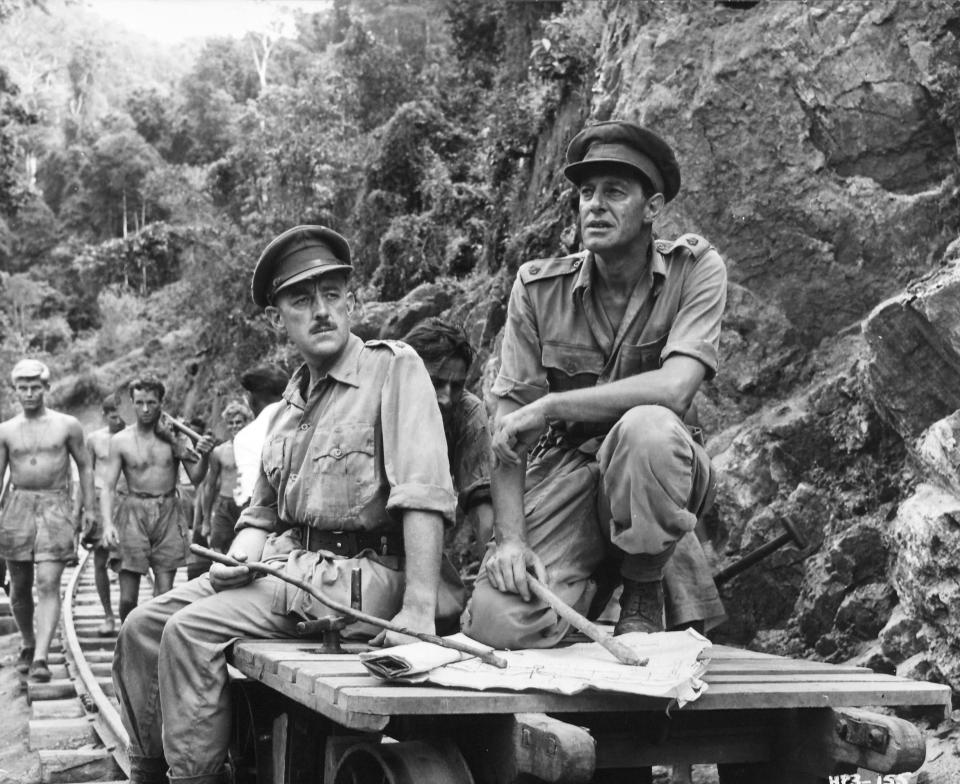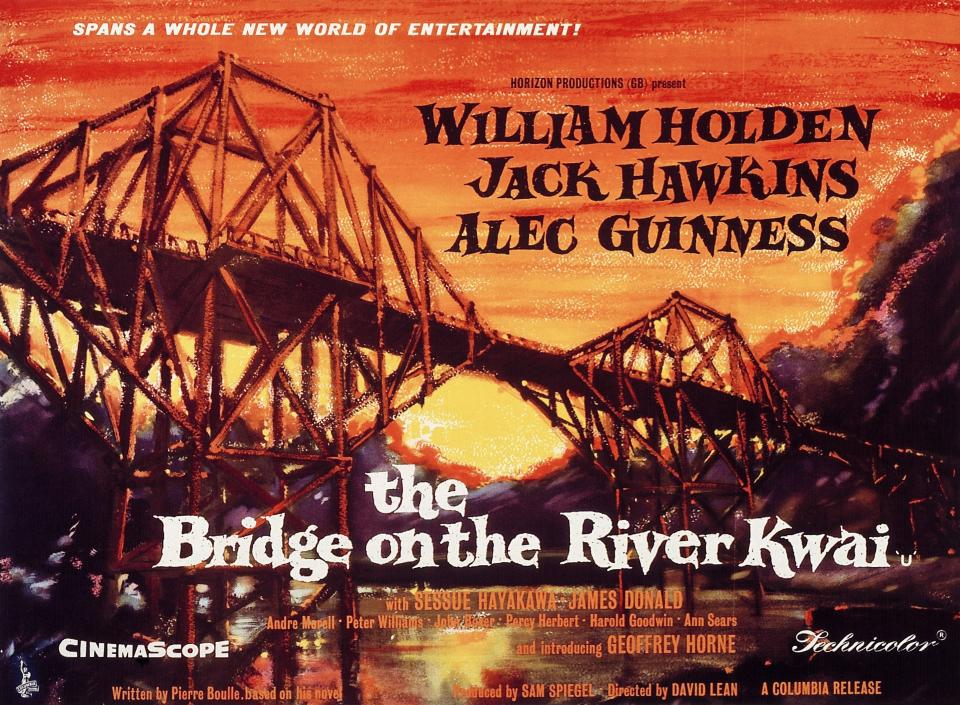Newly released letters reveal military objections to 'The Bridge On The River Kwai'

Classic British war movie The Bridge on the River Kwai was met with objections by the War Office in the UK, according to newly released letters.
There were concerns raised that director David Lean’s 1957 movie “only very occasionally resembles the facts as they were at the time” in its depiction of British prisoners of war.
The film, which went on to win seven Oscars, tells the story of POWs working on the eponymous structure over a Thai river in 1943.
Read more: Why cast of Saving Private Ryan almost quit
New letters, housed at the National Archives, show the War Office was opposed to the film’s story when a script was submitted and believed it “would not go down well with the British public” at the time.
The movie shows Alec Guinness’s Lt Col Nicholson refusing to allow officers to carry out manual labour on the “railway of death” before ultimately deciding they should work on it to maintain pride and ensure a high standard of construction.

The War Office ultimately agreed to RAF co-operation with the project, but said they were “not entirely happy about this film story”.
They also expressed concern that the movie would not “authentically portray” the conduct of British officers during the war.
Read more: Alec Guinness’s scathing Star Wars letter revealed
Members of the Far East Prisoners of War committee were also unhappy with the way the movie planned to portray officer behaviour.
Their concern was that the movie would depict co-operation with captors on the part of officers, when escape and sabotage was actually their primary responsibility.

Lt Gen Arthur Ernest Percival, chairman of the committee, wrote: “Our members are as a body justifiably proud of their conduct as prisoners-of-war.
“They suffered a great deal for it and they would now deeply resent the presentation of any film which tended to misrepresent and cast aspersions on their conduct.”
Read more: Best British films of the 2010s
The movie’s scriptwriters Carl Foreman and Michael Wilson — who were not credited due to their presence on the Hollywood Blacklist at the time — sought to highlight examples of where sabotage had been shown.
They also highlighted revisions that had been made to the script, which would go on to win the Oscar for Best Adapted Screenplay.
Despite its controversy, The Bridge on the River Kwai is now considered a masterpiece and routinely appears on lists of the best British movies ever made.

 Yahoo Movies
Yahoo Movies 
